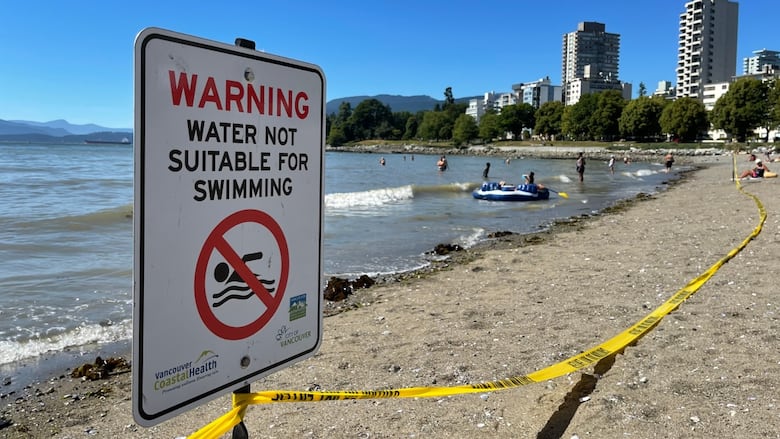Swimming not advised at several Metro Vancouver beaches due to E. coli
Samples from West Vancouver's Dundarave Beach had bacteria levels over 5 times higher than safe swimming limit

Several beaches in Metro Vancouver are under no-swimming advisories due to high levels of E.coli.
They include Second Beach, Third Beach, Kitsilano Beach, Sunset Beach, English Bay, Trout Lake, as well as Dundarave Beach and Lions Bay.
The advisories come after Vancouver Coastal Health's (VCH) routine water quality testing showed dangerous levels of E. coli. The most up-to-date list of affected beaches can be found here.
E. coli is a bacteria that's commonly found in the intestinal tract of animals and humans, but it can also be found in swimming water that has been polluted with untreated waste. VCH says leaking septic tanks, discharge from boats and storm water runoff after heavy rains are key culprits.
Michael Schwandt, a medical health officer for VCH, said that people can still go to the beach, but they should avoid going into the water until the advisories are lifted.
"They can still be accessed for people to relax and spend time, but we would not recommend ... getting in the water," he said.
Ocean water samples from West Vancouver's Dundarave Beach contained E. coli levels more than five times higher than the maximum allowable limit for safe swimming, while samples from Vancouver's Sunset Beach showed E. coli levels just over four times the allowable limit.
Health officials say that swallowing water with high levels of E. coli can lead to vomiting, infections, and diarrhea. E. coli can also irritate the skin and seniors, children and people with compromised immune systems are most susceptible to it.
Metro Vancouver beaches are monitored for E.coli from May to September, and many post no-swimming warnings during the summer due to high levels.
The swimming advisories will remain until follow-up samples deem the water safe.
Anyone who comes into contact with water that contains high levels of E. coli is advised to wash off afterwards.
With files from Baneet Braich and Yasmine Ghania
